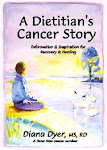Talk about irony. It's hard to wrap my brain around the polar opposites of these two articles published the same day.
The Wall Street Journal published a short article today outlining dietary advice that Greenpeace has given citizens in Australia to help reduce global warming. By reducing beef consumption 20% and increasing consumption of kangaroo meat in its place, Australians can reduce their country's carbon emissions by 15 million metric tons per year by the year 2020. (that sounds like a lot - I hope that amount is truly significant)
I don't know if this diet/lifestyle change will really happen. When we visited Australia earlier in the year, my husband did find a restaurant that served kangaroo. He tried it; I didn't. His analysis? He can now check that off his list of foods he has tried once. However, to be fair, we met a man at a B&B outside Melbourne who regularly ate kangaroo and could not even stand the smell of beef when it was being cooked, let alone the taste of it. In addition, he claimed that people who regularly eat beef even have a subtle odor that he could detect and found unpleasant. The contrast between my husband's taste experience and that of this native Aussie likely point to the importance of food exposure and culture while growing up.
It seems to me that the more logical alternative to achieve the same goal of reducing carbon emissions related to what we choose to eat is to dedicate at least 20% of your meals when you would have beef or any meats to meatless meals. And for the other meals when you do eat meat or fish, reduce the portion size to half of what you have usually eaten and also consider taking steps to purchase meats from locally, organically, and humanely raised animals. You may see that the cost is more than supermarket specials, but you will also find that the taste is superior. Eat less and savor it more!
There are numerous cookbooks, web sites, blogs, and restaurant choices to help you do that. (and sorry, I am not talking about a pizza with double cheese!) I list many books on my web site along with numerous delicious meatless meals that are all family-tested and approved. :-)
Contrast this discussion with the fact that today, October 16, is designated as the annual World Food Day by the United Nations to bring attention to the fact that more than 850 million people around the world still do not have adequate food on a daily basis for optimal health and well-being. I don't think many of these families are having a discussion of "What's for dinner - kangaroo or beef?"
My visit to the international headquarters of The Heifer Organization in Little Rock, AR this past spring really brought this world-wide disgrace home to me. I commend the philosophy of The Heifer Organization that helps each family "learn to fish" rather than just "giving them a fish". Thus they will eat for a lifetime instead of just for a day while also earning enough money to help educate their children and teaching others in their community how to do the same, thus improving the quality and sustainability of their entire community.
No kangaroo on the dinner plate for us tonight, or any other meat either. I will be making a vegetarian moussaka with a large eggplant that I have (recipe from the cookbook From Asparagus to Zucchini: A Guide to Cooking Farm-Fresh Seasonal Produce by the Madison Area Community Supported Agriculture Coalition, 3rd edition, Jones Books, Madison, WI, 2004). We also have some fresh kale from our garden, and I've already cooked some brown rice in our rice steamer. We may also take a quick trip to the Ypsilanti Farmers' Market that is coordinated by Growing Hope, a great local organization that helps people organize community gardens and is also helping to get affordable fresh produce to families where there is no neighborhood grocery store.
What's for dinner? There is still time to get down to your local Farmers' Market. :-)
Diana Dyer, MS, RD
Subscribe to:
Post Comments (Atom)


No comments:
Post a Comment